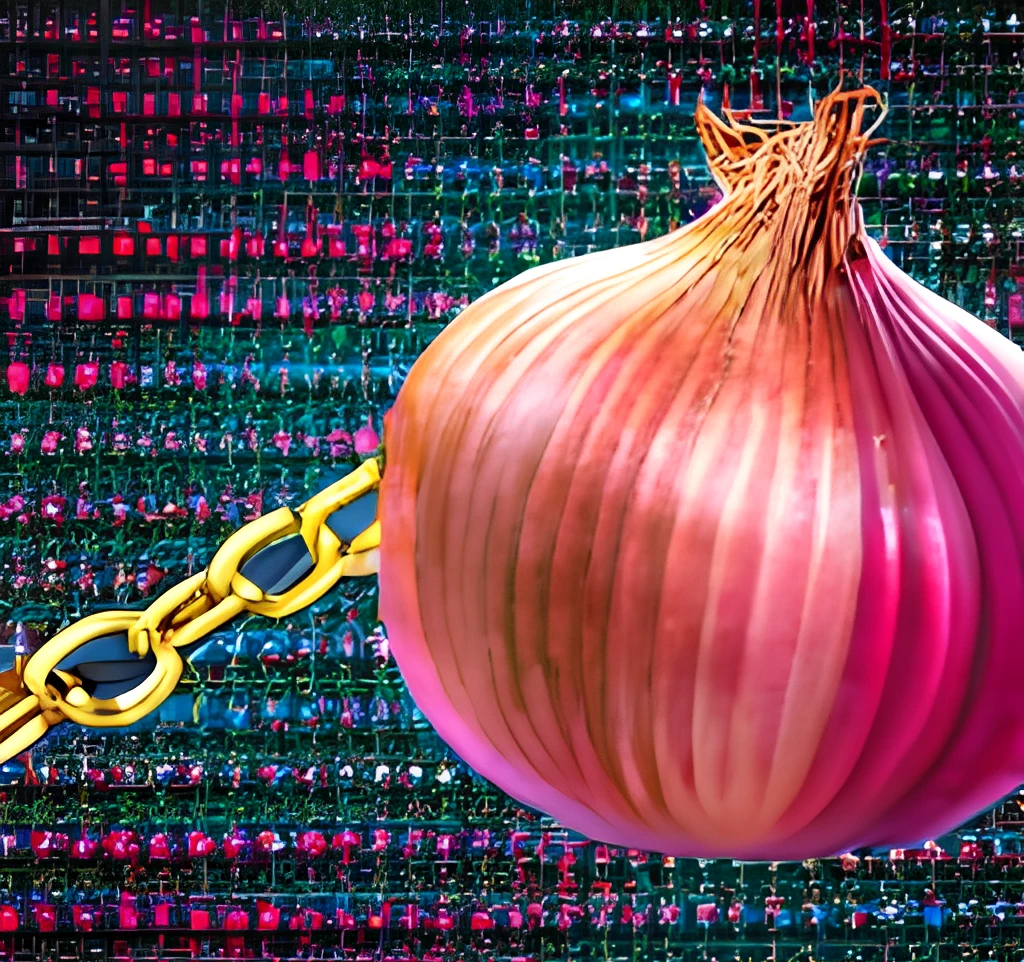
Access the Dark Web Safely with Onion Links
The Dark Web, also known as the Deep Web and the Invisible Web, is a part of the internet that’s only accessible to those who have a specialized browser like Tor. The purpose of these links are to hide your identity and make sure no one can see correlate your activity on the Dark Web with who you really are.
You can use onion links to access sites without anyone knowing what you’re doing. These links are like special keys that direct encrypted data to another server where it’s decrypted and viewed by the site you’re visiting. While using onion links ensures that nobody will know what you’re looking for on the dark web, it does have some limitations. Though many onion links are redundant or dead, one has to find a collection of working onion links in order to find working sites and markets on the dark web.¹
When using an onion link, it’s important to remember that there are only 50 total connections available at any given time.
The Dark Web onion links are occasionally used for illegal purposes like buying drugs, weapons, and fake IDs. However, you can use this technology for good! You can find people who use onion links to share their stories about how they have been affected by traumatic events in their lives. These stories are very emotional but may help someone else going through similar experiences get through them too.
You can also read stories and accounts by journalists and political dissidents who live in countries where there is no freedom of speech, religion, or press. In addition, whistleblowers are also known to share info about corporations and governments who are up to no good, or who discriminate against people for unjust reasons.
This is why, if you want to be anonymous online, you need to use onion links and other methods that protect your privacy.
As we’ve already explained, the darknet (or deep web) is an area of the internet that isn’t indexed by search engines and therefore cannot be found with normal search engines like Google. Onion sites offer privacy protections for users who want anonymity while browsing through these sites anonymously in peace without having someone watching over their shoulder all day long.
Onion links only works on certain sites and browsers. You can’t use this method to access sites that aren’t hosted in your country or region, so if you need access to a site that’s restricted by geographic location (like Facebook), you’ll have to see if they have an onion link (they do, by the way, and it’s at facebookwkhpilnemxj7asaniu7vnjjbiltxjqhye3mhbshg7kx5tfyd.onion/).
The onion links are often slow. Limited bandwidth consumption limits how many requests per second can be made with these types of connections; thus causing slow speeds overall when trying out new tools like TOR Browser Bundle which require lots more bandwidth than normal browsing sessions do.
To get around this limitation of 50 new connections per server, I recommend using Tor Browser. If you use Tor Browser with the Tor browser extension installed (and not just open it), then all requests made by your computer will go through this anonymizing network before reaching its destination page on the Dark Web. This way, even if someone finds out about your account (which is possible but unlikely), they won’t be able to tell who has logged in from where because every IP address belongs only once per hour—and since there aren’t many servers available on Tor itself anyway, chances are pretty good that no one knows which one belongs specifically yours!
Onion Links Protect Your Privacy on Anonymity Sites
The onion links work by creating a series of encrypted connections between users, which are then used to hide your identity. The idea is that you have multiple layers of encryption and anonymity at each level. This means that even if someone were to try and track down your IP address or location, they would be unable to do so because it would be impossible for them to find out where exactly in the world you’re located—even if they knew what country or city was hosting your computer (which they don’t).
This type of security has long been used by online criminals who want their activities kept secret from authorities but also want their identities protected from law enforcement agencies investigating illegal activity on the web. Onion links were created as an alternative way for people who wanted something similar without having accesses through Tor Browser or any other software package available today; however, now there are many more ways than ever before where we can use these types tools safely!
Conclusion
Onion links are an excellent way to protect yourself from surveillance and access the dark web safely. They’re also much more private than other methods of accessing dark web sites like TOR browsers. If you want to learn more about these links and how they work, check out the working onion links on our homepage!
See:
1] Steinebach, Martin, et al. “Detection and analysis of tor onion services.” Proceedings of the 14th International Conference on Availability, Reliability and Security. 2019.